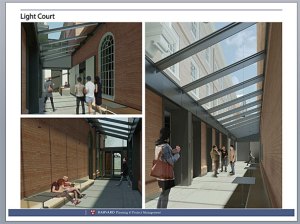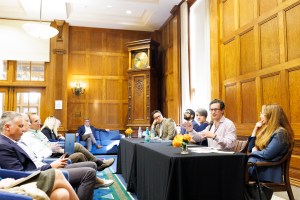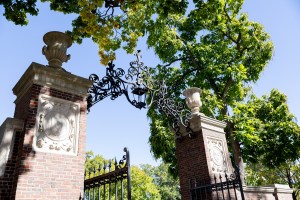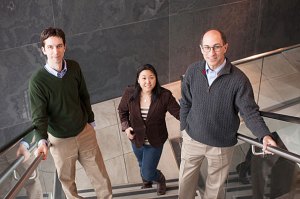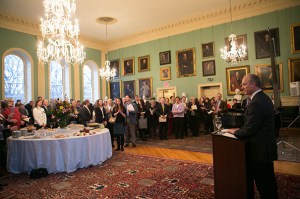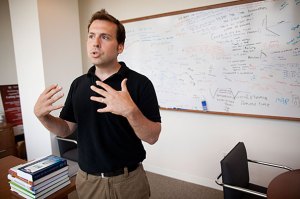Tag: FAS
-
Science & Tech
Sharper view of matter
In a breakthrough that could one day yield important clues about the nature of matter itself, a team of Harvard scientists has measured the magnetic charge of single particles of matter and antimatter with unprecedented precision.
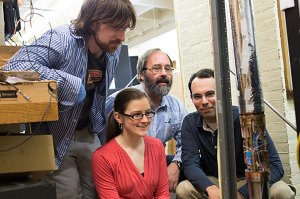
-
Health
When timing is everything
In a new paper, Christopher Marx, associate professor of organismic and evolutionary biology, says that beneficial mutations may occur more often than first thought, but many never emerge as “winners” because they don’t fall within the narrow set of circumstances required for them to dominate a population.
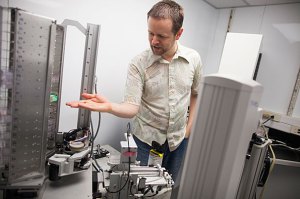
-
Arts & Culture
Poetic greetings
A Woodberry Poetry Room exhibition features the “Phone-a-Poem” archive, a Cambridge-based service that for 25 years allowed callers to dial in and listen to a famous poet recite his or her work as it was played back on an answering machine.

-
Health
One gene, many mutations
In a new paper, Harvard researchers show that changes in coat color in mice are the result not of a single mutation, but of many mutations, all in a single gene. The results start to answer one of the fundamental questions about evolution: Does it proceed by huge leaps — single mutations that result in…
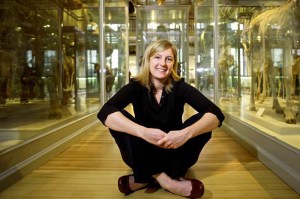
-
Health
Q&A with Matthew Nock
Professor of Psychology Matthew Nock is the author of a new paper, co-authored with other Harvard faculty, which examines suicidal thoughts and behaviors among adolescents. In a recent conversation with the Gazette, Nock discussed his research, and the resources available at Harvard for students and others in the community.
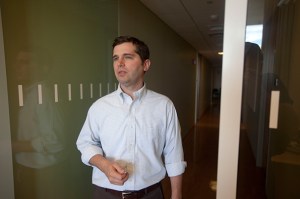
-
Campus & Community
First Santiago Ramón y Cajal Professor is named
Jeff Lichtman, the Jeremy R. Knowles Professor of Molecular and Cellular Biology, has been appointed as the first Ramón y Cajal Professor of Arts and Sciences.
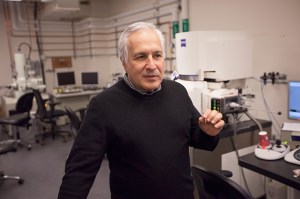
-
Campus & Community
A fireside chat with the dean
Harvard College Dean Evelynn M. Hammonds hosted a fireside chat at her home with Professor Henry Louis Gates and about 25 student participants who had been selected through a lottery system. The chat was part of a series of events designed to foster interaction between undergraduates and faculty outside the classroom.
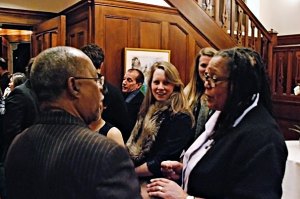
-
Health
Linking insulin to learning
Work led by Yun Zhang, associate professor of organismic and evolutionary biology, shows how the pathway of insulin and insulinlike peptides plays a critical role in helping to regulate learning and memory.
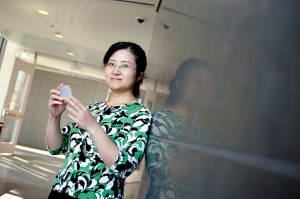
-
Arts & Culture
100 years of Harvard University Press
This year marks the 100th anniversary of Harvard University Press (HUP), and as part of a yearlong celebration Houghton Library is hosting an exhibition of HUP publications, correspondence, and other materials.

-
Campus & Community
New leader in teaching, learning
Robert A. Lue has been named the Richard L. Menschel Faculty Director of the Derek Bok Center for Teaching and Learning, placing him at the forefront of efforts to rethink teaching and learning, both on campus and off.
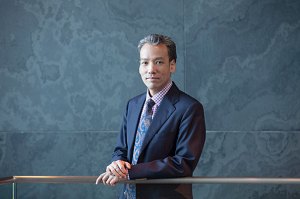
-
Science & Tech
Weather warning
A report co-authored by Professor Michael McElroy and D. James Baker, a former administrator of the National Oceanic and Atmospheric Administration, connects global climate change, extreme weather, and national security.
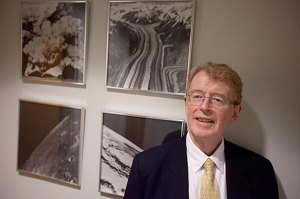
-
Health
Go with your gut
Peter Turnbaugh and co-authors Corinne Ferrier Maurice and Henry Joseph Haiser show that as drugs are administered, the activity of human gut microbes can change dramatically. Understanding how those changes affect drug chemistry could help researchers to design drugs that work more effectively and antibiotics that more specifically target pathogens.
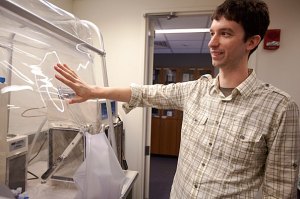
-
Science & Tech
Robots with lift
Using small explosions produced by a mix of methane and oxygen, researchers at Harvard have designed a soft robot that can leap as much as a foot in the air. That ability to jump could one day prove critical in allowing the robots to avoid obstacles during search and rescue operations.
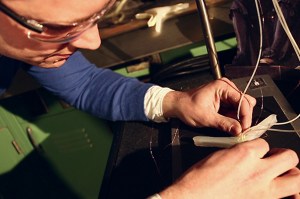
-
Campus & Community
Faculty author series at Widener
Harvard College Dean Evelynn M. Hammonds is sponsoring a book talk series featuring Professors John Dowling, Jennifer Hochschild, and Jill Lepore.

-
Science & Tech
When fairness prevails
Using computer simulations designed to play a simple economic “game,” researchers at Harvard’s Program for Evolutionary Dynamics showed that uncertainty is a key ingredient behind fairness. Their work is described in a Jan. 21 paper in the Proceedings of the National Academy of Sciences.
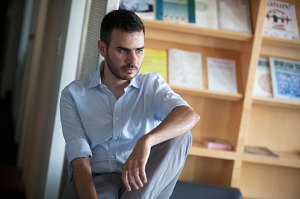
-
Arts & Culture
On the nature of difference
Harvard College Dean Evelynn M. Hammonds discussed her book “The Nature of Difference: Sciences of Race in the United States from Jefferson to Genomics” before 50 students as part of Wintersession activities.

-
Health
Watching teeth grow
For more than two decades, scientists have relied on studies linking tooth development in juvenile primates with their weaning as a rough proxy for understanding similar landmarks in the evolution of early humans. New research from Harvard, however, challenges that thinking by showing that tooth development and weaning aren’t as closely related as previously thought.
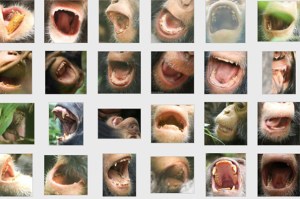
-
Health
A hidden genetic code
For decades, scientists wondered whether there was some subtle difference between parts of the genetic code that, while different, appear to encode the same amino acid. Harvard researchers now have the answer.
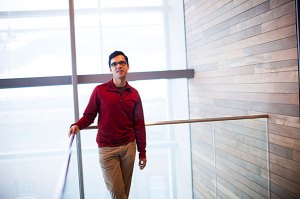
-
Health
Digging yields clues
As described in a Jan. 16 paper in Nature, a team of researchers led by Hopi Hoekstra, professor of organismic and evolutionary biology and molecular and cellular biology, studied two species of mice – oldfield mice and deer mice – and identified four regions in their genome that appear to influence the way they dig…
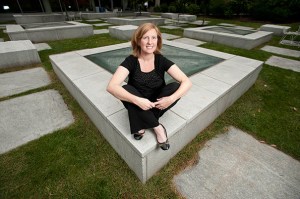
-
Campus & Community
New life for Old Quincy
The first House renewal test project, Old Quincy, is nearly halfway through its 15-month renovation.
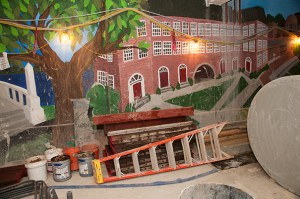
-
Health
One cell is all you need
Scientists at Harvard have pioneered a breakthrough technique that can reproduce an individual’s entire genome from a single cell. The development could revolutionize everything from cancer treatment, by allowing doctors to obtain a genetic fingerprint of a person’s cancer early in treatment, to prenatal testing.

-
Health
Sniff mechanics
As described in a Dec. 19 paper in Neuron by Venkatesh Murthy, a professor of molecular and cellular biology, researchers have, for the first time, shed light on how the neural feedback mechanism of the olfactory system works by identifying where the signals go, and which type of neurons receive them.
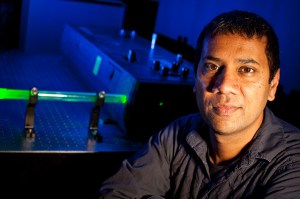
-
Science & Tech
Corn in a changing climate
Harvard researchers have concluded that omitting the adaptive ability of crops from assessments of potential damages from a warming climate could substantially overestimate losses to U.S. maize yields.
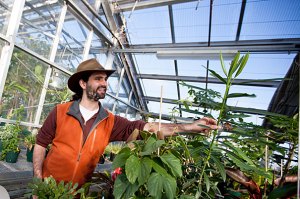
-
Health
Solving a biological mystery
A team of Harvard researchers has shown that insects like crickets possess a variation of a gene — called oskar — that is critical to the production of germ cells in “higher” insects. That discovery suggests that the oskar gene emerged far earlier in insect evolution than researchers previously believed.
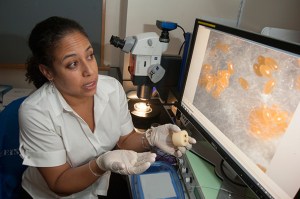
-
Health
The bounty of EDEN
An associate professor at Harvard, Cassandra Extavour also heads up the Evo-Devo-Eco Network (EDEN), a collaborative group of researchers devoted to encouraging the study of nontraditional “model” organisms, ranging from sea anemones and crickets.
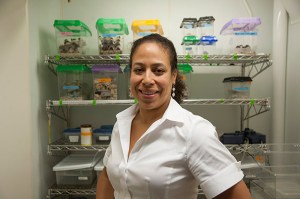
-
Campus & Community
New life for McKinlock
The second House renewal test project, Leverett’s McKinlock Hall, is scheduled to begin in June. The project will result in greater common and recreational space for students, which will help foster community and nurture learning.
